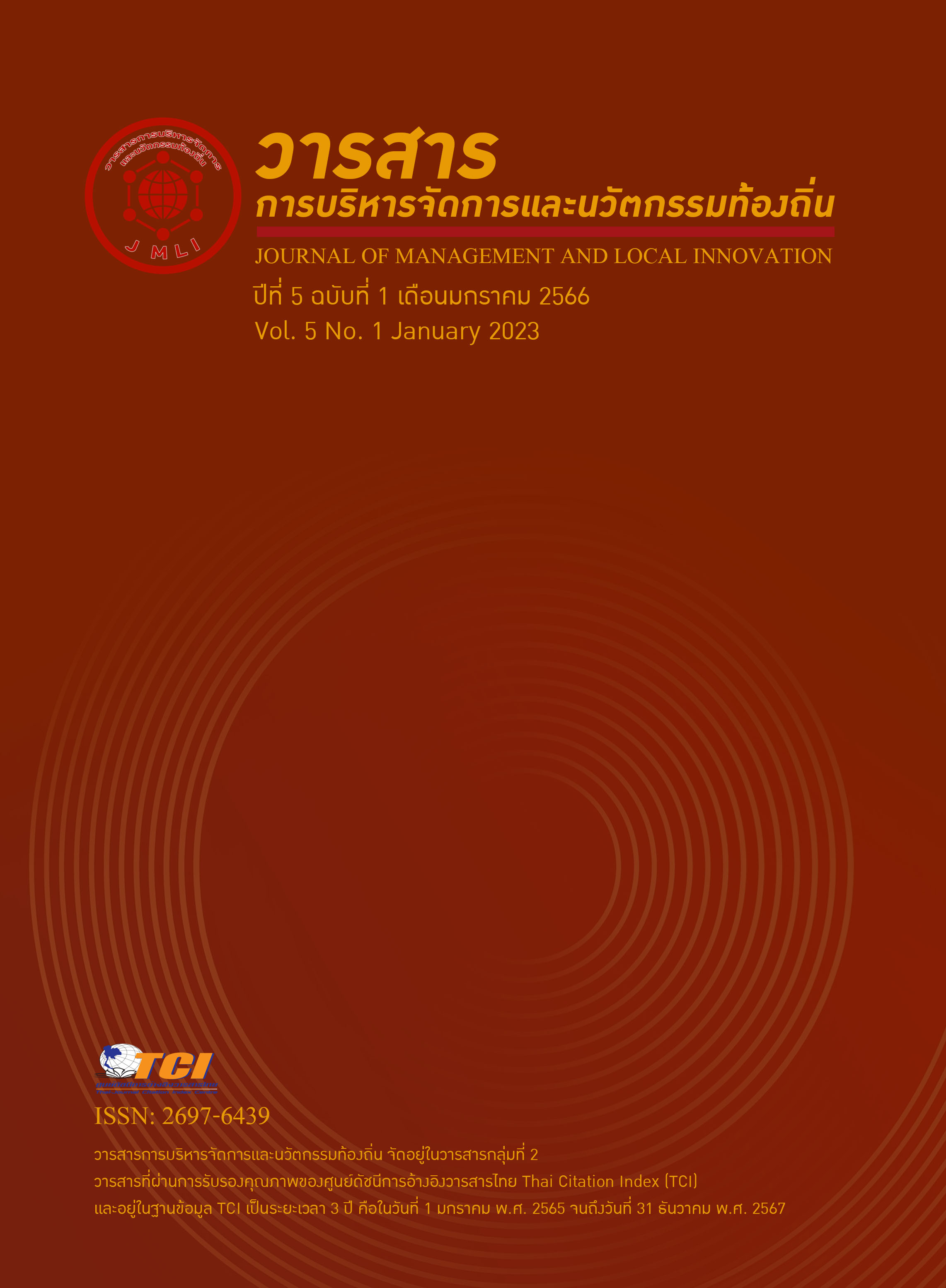Guidelines for Competency Development of Early Childhood Education Teachers under the Supervision of Nakhonnayok Primary Educational Service Area Office
Keywords:
Guidelines for Competency Development, Early Childhood Education TeachersAbstract
The purposes of this research were 1. to create the guidelines for competency development of early childhood education teachers; 2. to study the appropriateness and feasibility of the guidelines for competency development of early childhood education teachers. The research methodology consisted of two steps: Step 1: Create guidelines for competency development of early childhood education teachers by exploring relevant documents and checking a content validity from 5 experts in educational administration, which were obtained by a purposive sampling. A content validity questionnaire was used as a research instrument. Data were analyzed using the Item-Objective Congruence (IOC). Step 2 was to evaluate the appropriateness and feasibility of the guidelines for competency development of early childhood education teachers. The population consisted of 214 school administrators and early childhood education teachers under the supervision of Nakhonnayok Primary Educational Service Area Office. The research instrument was a questionnaire with a reliability value of 0.91. Data were analyzed using statistics to determine mean, percentage, and standard deviation. The study results revealed that 1) the guidelines for competency development of early childhood education teachers consist of 6 dimensions and 41 points as follow: 1. Competency on curriculum management and learning management consisting of 10 points, such as early childhood education teachers create and develop educational institution curriculum to be consistent with Early Childhood Curriculum B.E.2560 (A.D.2017) 2. Competency on learner development consisting of 8 points, such as early childhood education teachers manage activities that promote morality and ethics by allowing children to participate in planning learning experience activity management. 3. Competency on classroom management consisting of 6 points, such as early childhood education teachers are able to create a safe and supportive learning environment both inside and outside the classroom. 4. Competency on analysis, synthesis, and research for learner development consisting of 6 points, such as early childhood education teaches determine policies and work plans related to child development research. 5. Competency on teacher leadership consisting of 6 points, such as early childhood education teachers are able to evaluate behaviors showing professional maturity as a teacher. 6. Competency on building relationship and cooperation with communities for learning management consisting of 5 points, such as early childhood education teachers build good relationship and cooperation with communities. All points are congruent, 2) all created guidelines for competency development of early childhood education teachers under the supervision of Nakhonnayok Primary Educational Service Area Office achieved evaluation of suitability and feasibility higher than the determined criteria.


